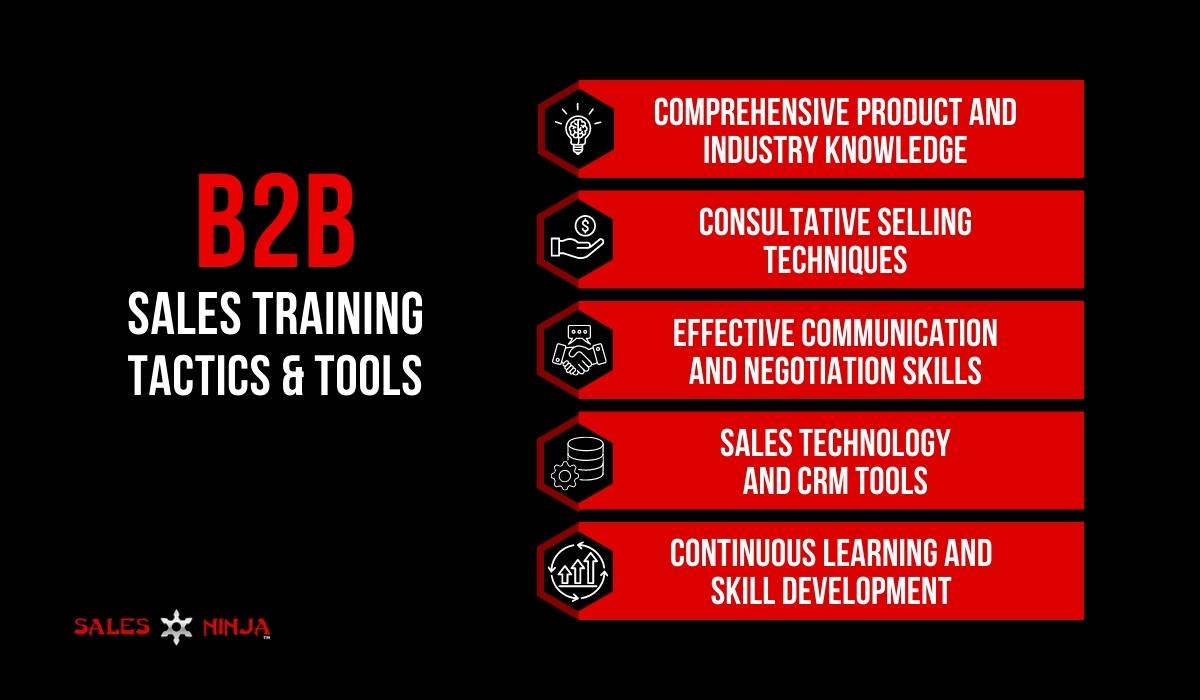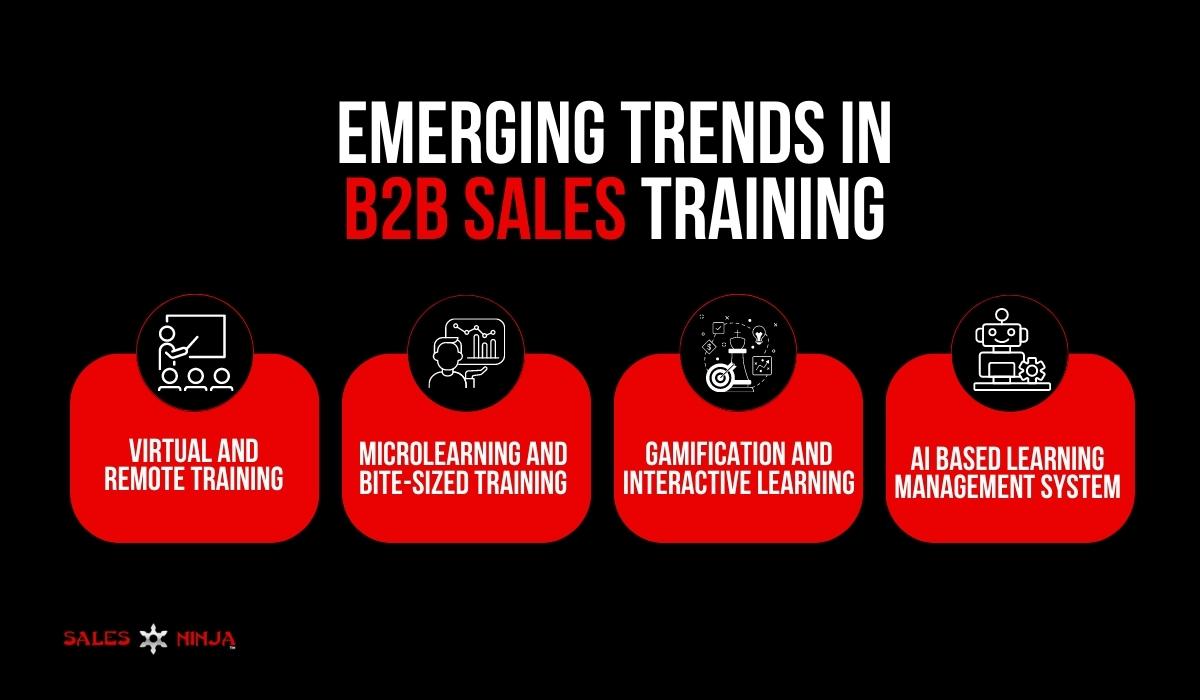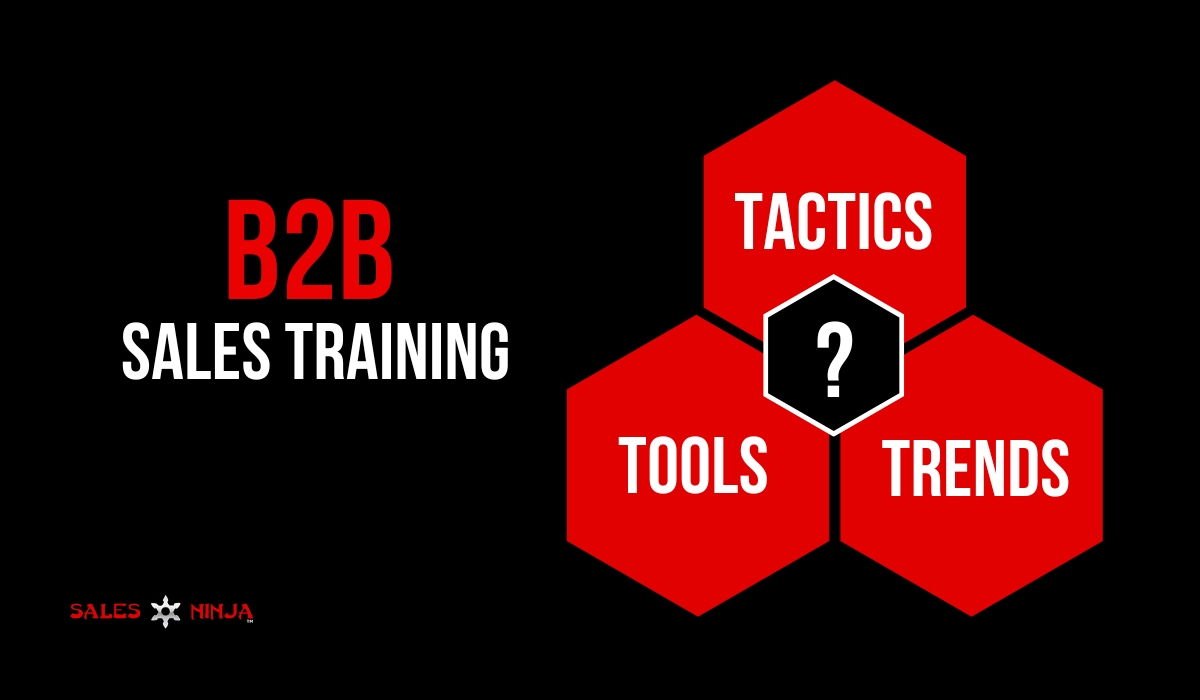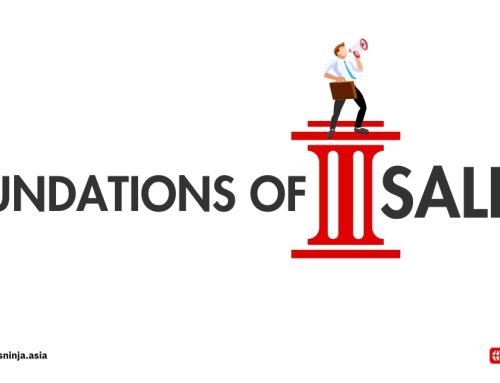B2B Sales Training: Tactics, Tools & Trends
The B2B sales process involves a series of stages that guide sales professionals and their customers toward a successful deal. From targeting prospective clients to qualifying them and engaging in the discovery phase, the process requires understanding the client’s needs, designing customized solutions, and building consensus within their organization.
Success in B2B sales doesn’t come from just selling a product or service; it stems from building relationships, understanding client needs, and delivering value. But how can sales teams continuously refine their skills, adapt to market trends, and stay ahead of the competition?
Why B2B Sales Training Matters?
First, let’s address the elephant in the room: Why does B2B sales training matter? Well, simply put, it’s the secret sauce that can elevate your sales team’s performance and drive revenue growth. In today’s highly competitive marketplace, buyers are more knowledgeable and demanding than ever. To win their trust and seal the deal, your sales team needs to be armed with the latest strategies, techniques, and insights.
In this article, we will dive deep into the world of B2B sales, exploring the tactics, tools, and trends that can empower your sales force and drive exceptional results.

B2B Sales Training: Tactics & Tools
B2B Sales Training: Tactics & Tools
When it comes to B2B sales, having the right tools and tactics in your arsenal can make all the difference. The right combination of strategies and tools can empower your sales team to build strong relationships, close deals, and drive revenue growth.
Let’s explore some effective B2B sales training tactics and highlight some essential tools that can empower your team for success.
-
Comprehensive Product and Industry Knowledge
Successful B2B sales professionals need a deep understanding of the products or services they are selling, as well as the industry they operate in. Comprehensive product knowledge allows salespeople to articulate the value proposition effectively, address customer pain points, and highlight unique selling points. Similarly, staying up-to-date with industry trends, challenges, and competitors helps sales teams position themselves as trusted advisors to their clients.
-
Consultative Selling Techniques
B2B sales training should emphasize the importance of consultative selling. Rather than focusing solely on pushing products or services, sales professionals need to adopt a solution-oriented approach. This involves actively listening to customer needs, asking probing questions, and providing tailored solutions that address specific pain points. Consultative selling builds trust, fosters long-term relationships, and positions salespeople as valuable partners in their client’s success.
-
Effective Communication and Negotiation Skills
Clear and persuasive communication is essential in B2B sales. Sales training should equip professionals with the ability to convey their message concisely, adapt their communication style to different stakeholders, and build rapport with clients. Additionally, honing negotiation skills are crucial for securing favorable deals. Training should cover techniques for handling objections, navigating complex negotiations, and finding mutually beneficial outcomes.
-
Sales Technology and CRM Tools
In today’s digital age, leveraging technology is vital for B2B sales success. Sales training should include guidance on utilizing sales technology and Customer Relationship Management (CRM) tools effectively. CRM systems help streamline sales processes, track customer interactions, manage leads, and forecast sales. Additionally, other sales tools like email automation, sales analytics platforms, and virtual meeting software can enhance productivity and provide valuable insights for sales teams.
-
Continuous Learning and Skill Development
B2B sales learning is not a one-time event; it is an ongoing process. Encouraging a culture of continuous learning and skill development within your sales team is crucial. This can involve attending industry conferences, participating in webinars, reading relevant sales literature, or engaging in role-playing exercises to sharpen sales techniques. Regular training sessions, coaching, and feedback loops also contribute to the continuous improvement of sales skills.

Emerging Trends in B2B Sales Training
Emerging Trends in B2B Sales
As the business landscape evolves, sales training must keep pace with emerging trends. Here are a few key trends shaping the future of B2B sales.
-
Virtual and Remote Training
The rise of remote work and virtual communication has necessitated a shift towards virtual training. Online platforms, video conferencing, and interactive e-learning modules provide flexibility and accessibility for sales teams.
-
Microlearning and Bite-Sized Training
Attention spans are shrinking, and sales professionals are seeking quick, actionable insights. Microlearning, with its bite-sized training modules, offers concise and targeted knowledge delivery that can be easily consumed and applied on the job.
-
Gamification and Interactive Learning
Gamifying the training experience injects an element of fun and competition, fostering engagement and knowledge retention. Interactive simulations and role-playing exercises immerse sales teams in realistic scenarios, sharpening their skills in a dynamic environment.
-
AI-based Learning Management System:
The integration of AI-based LMS into these emerging trends brings a new level of sophistication and effectiveness to B2B sales training. These advancements in technology have enabled sophisticated and effective personalized training experiences. For example, ChatCoach.ai. It ensures that sales professionals are equipped with the skills and knowledge needed to excel in a rapidly changing business landscape.
-
Evaluating B2B Sales Training Effectiveness
Evaluating the effectiveness of B2B sales training requires a multi-faceted approach. Salesforce surveys can gauge the sales team’s perception of the training program, while manager feedback provides insights into their ability to apply learned skills. Measuring win rates and won deals helps assess the impact on actual sales performance. Calculating the return on investment considers the increased revenue generated as a result of the training and the long-term retention of trained sales professionals.
Considering the necessity of B2B sales training, Sales Ninja is excited to announce our public training program, “B2B Sales Ninja: Target Any Customer You Want- AI-Powered.” Through our training program, you will gain invaluable insights into effective B2B sales strategies, learn to navigate complex sales cycles, and understand how to leverage AI technology to your advantage.
So, don’t miss out on this opportunity to become a B2B sales ninja! Register now for our B2B sales training program and embark on a transformative journey toward sales excellence. We look forward to seeing you there!

B2B-Sales-Ninja






Leave A Comment